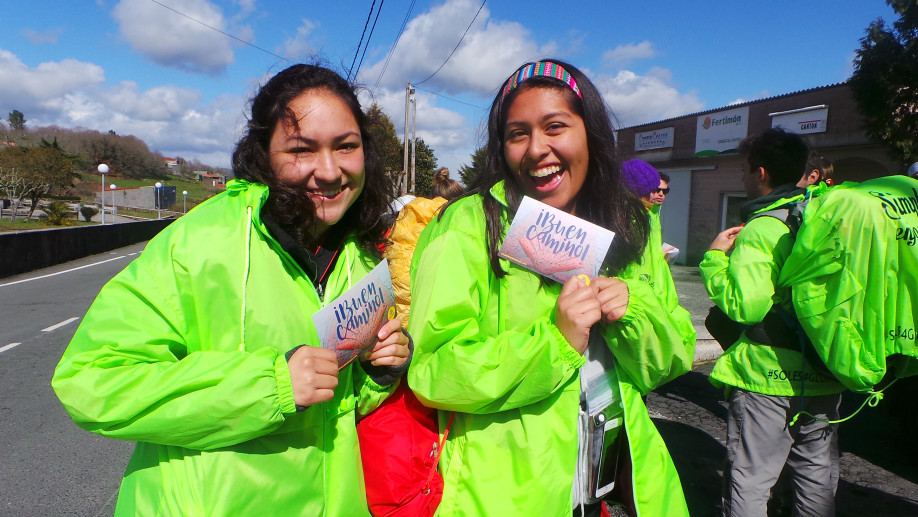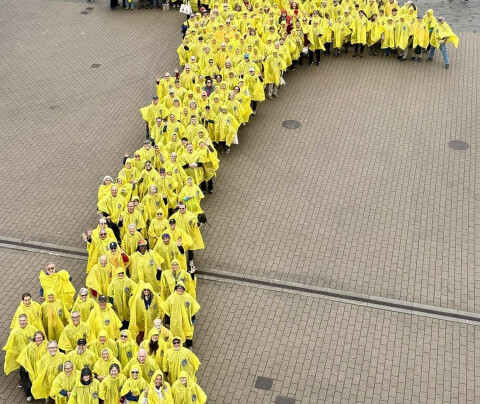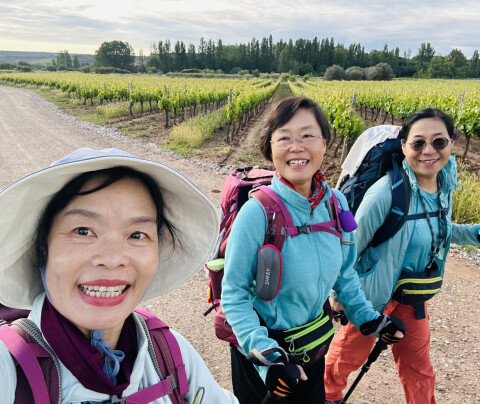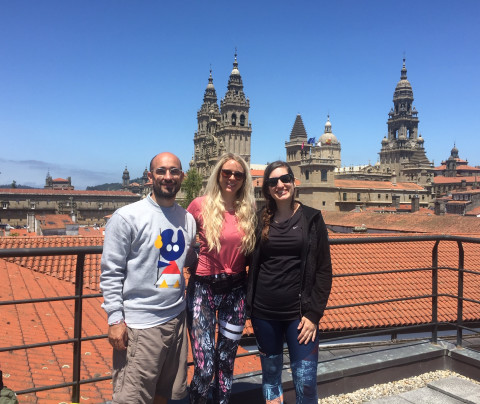Camino Teammates
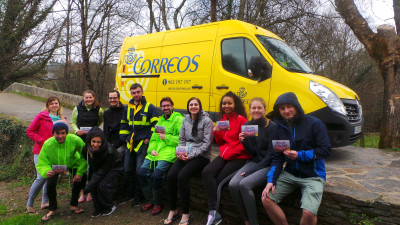
One hundred students. Twenty university from 13 countries around the world. For Routes of the Camino de Santiago. And one objective: to enhance cultural understanding and sustainable tourism. These are the ingredients of The Value of Human Rights on the Camino de Santiago, an initiative promoted by the World Tourism Organization (UNWTO), in collaboration with Red Helsinki España and the Compostela Universities Group, which has been in Galicia for the last five days.
The spirit of understanding, dialogue and cordiality of the Camino de Santiago is undoubted. And that is what young university students have experienced since Sunday, having travelled the Camino Francés, the Camino del Norte, the Camino Mozárabe and the Camino Portugués. They're accompanying us from the Camino con Correos and today we'll tell you about this experience on the Camino.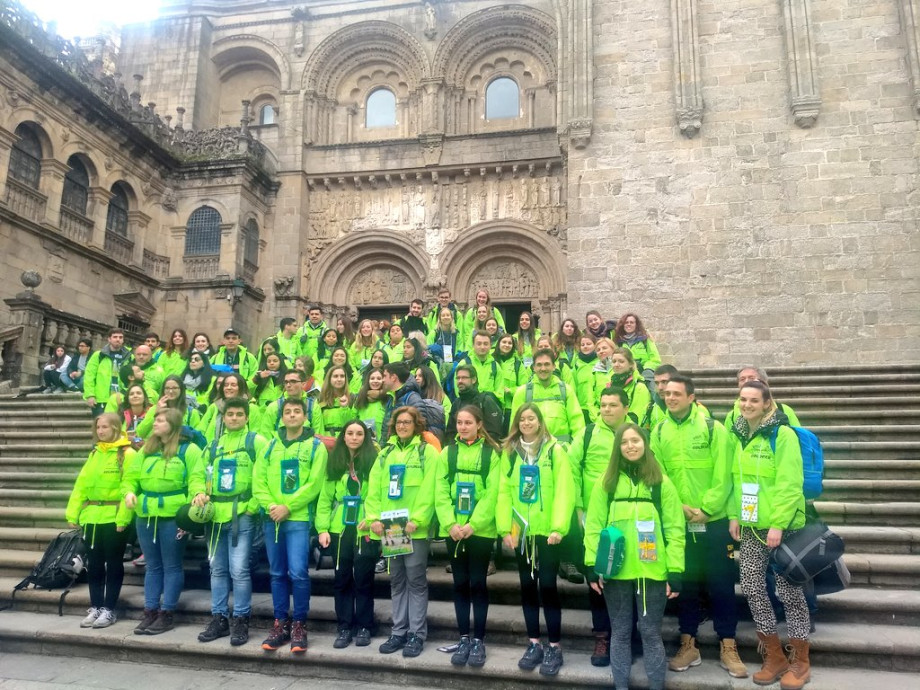
"The Camino de Santiago is an unforgettable experience. We have learned values of overcoming, of solidarity and companionship," so relates Shauni, a student at the University of Leuven (Belgium), after five days travelling the Camino del Norte from Vilalba. Five stages in which they have not only discovered Galicia and its landscapes but have also experienced the spirit of the Camino.
And that spirit is precisely what led UNWTO to choose the Camino de Santiago as the best testing ground for the knowledge acquired. "From increasing equality and protecting communities, to sustainable use of land, cultural routes can be a catalyst for better sustainability in our sector," said UNWTO Secretary-General Zurab Pololikashvili, who recognized the Camino de Santiago as the most important cultural route in the world.
"Along the Camino you will see how tourism can transform communities, generate income and preserve local heritage and culture," he added.
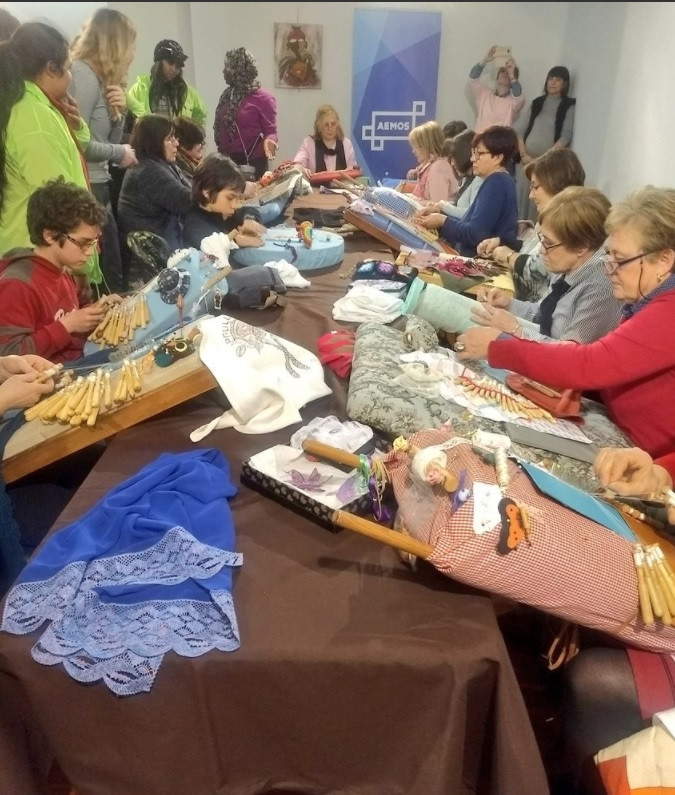
Sustainable tourism experiences
Because young people have not limited themselves to walk the Camino de Santiago and strengthening the ties between them. IN addition to the experience of pilgrimage in person, participants have been able to learn about some of the initiatives and traditions of municipalities through which the Jacobean Route passes.
For example, students from the Sudan, Mexico, Oklahoma and Spain traveling the Camino Portugués participated during their stay in Mos in a music and craft workshop. Additionally, throughout these five days, participants have checked in situ the viability of previously designed tourist products for the Camino de Santiago.
Because travelling the Camino de Santiago is just one of three phrases of the project The Value of Human Rights on the Camino de Santiago: enhancing the power of tourism, intercultural dialogue and the achievement of Sustainable Development Goals. At the beginning of the year, students from twenty universities in Europe, America, Africa and Asia carried out a two-month online study and reflection work on topics related to Human Rights and Sustainable Development. Throughout this phase, each university executed a feasible and sustainable tourism product proposal, with the potential to be developed on the Camino de Santiago.
The second phase took place this week, with the walking tour on the last 100 kilometres of the Camino de Santiago. Five days in which the main objective was to promote the cultural exchange and mutual knowledge of the students.
The closing of the project will take place tomorrow with the celebration of a University Forum in Santiago, which will present the final works performed, while rectors of the 20 participating universities will present their official commitments to work in favour of knowledge and application of the Sustainable Development Goals until the year 2030.
Correos’ logistical support
In their different itineraries to Santiago, young people have had the support of Correos, which has made available all services to enjoy the Camino without too much baggage.
Thus, before their departure, pilgrims go to the office located on Rúa do Franco, 4 in Santiago de Compostela, which is very close to the Cathedral -- a 2-minute walk. There they used the Luggage storage, leaving the luggage that they have brought or this trip and will pick up later, after enjoying the traditional Pilgrim's Mass and being received by Archbishop Julián Barrio.
Additionally, the postmen have been his travel companions. Day after day, the postmen have given them logistical support, mainly transporting their backpacks from hostel to hostel to facilitate their Camino and enable them to enjoy this adventure to the fullest. A service, the Paq Mochila, that begins on 23 March on practically all the Routes to Santiago: Camino del Norte, Camino Francés, Portugués, Primitivo, Inglés, Sanabrés and to Fisterra and Muxía.
In addition, the postmen have come to share their experience with the students while they have given them pre-printed postcards so they can write to their countries of origin and tell their experiences on this special Camino de Santiago.
Your email address will not be published.
Mandatory fields are marked with *




